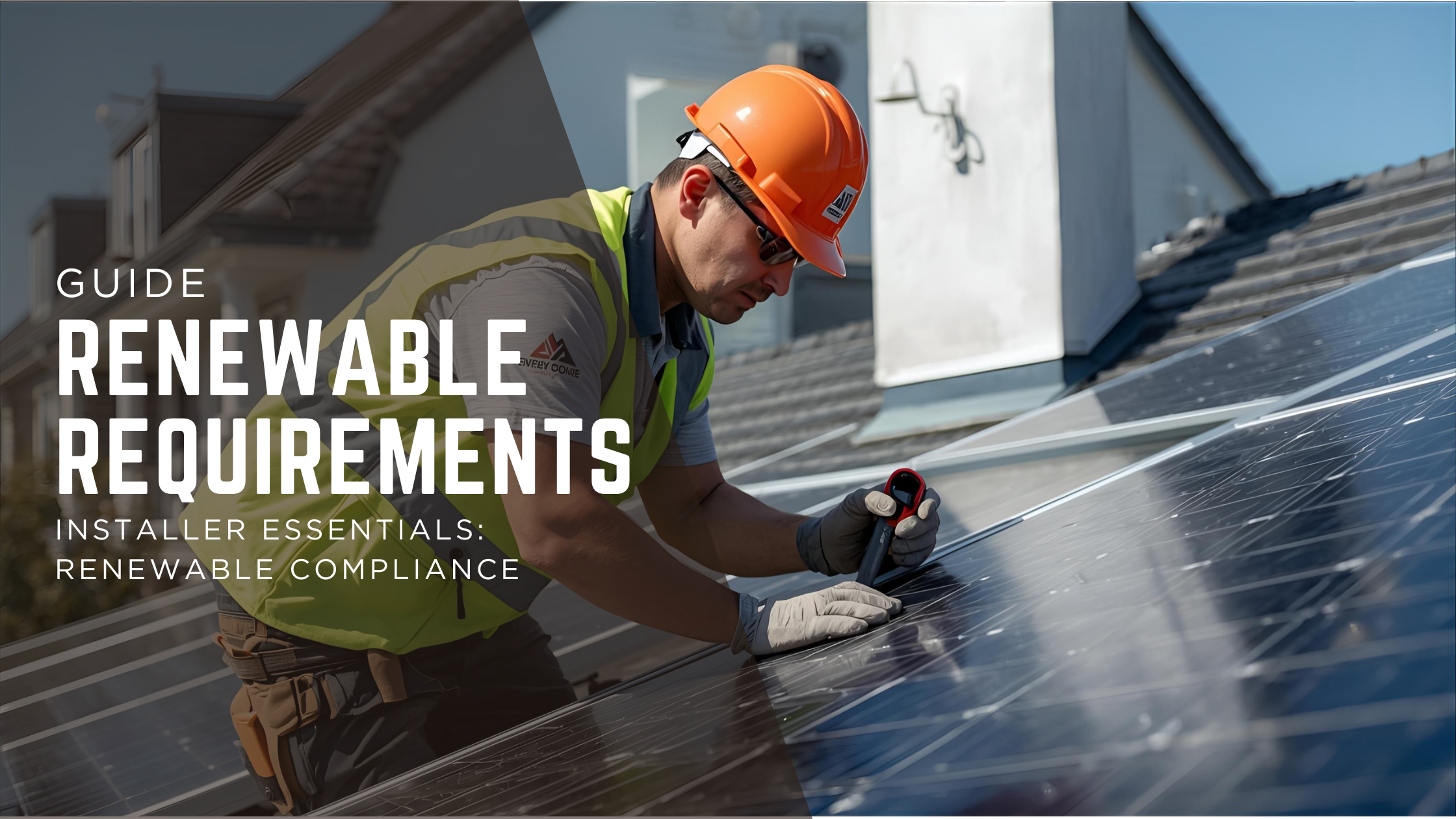Meeting the right requirements opens your door to funded schemes, proves your workmanship meets industry standards, and helps you build trust with customers.
But not all jobs carry the same requirements.
Able-to-pay jobs (funded entirely by the homeowner) have lighter requirements, though optional extras can give you a competitive edge.
Funded jobs (through government or energy company schemes) usually come with strict requirements that depend on the scheme.
This guide breaks down what you need for both.
But remember: schemes and requirements change regularly. Always check the latest official guidance before applying or advising customers, to make sure you’re working with the most up-to-date information.
Requirements for Able-to-Pay Jobs
Overview
Able-to-pay jobs are funded directly by the homeowner, with no grant or subsidy.
Because public money isn’t involved, the minimum requirements are much lighter.
Minimum requirements
Even without scheme funding, installers must still:
Comply with building regulations for the work being carried out.
Follow the manufacturer’s instructions and install safely and competently.
Provide a written workmanship guarantee (your own company warranty).
Optional extras (that help you win more jobs)
While not compulsory, the following can set you apart and reassure customers:
MCS certification – shows your installations meet industry-recognised standards; often essential if customers want access to green finance products.
Consumer code membership (RECC or HIES) – demonstrates fair trading practices and provides customers with access to dispute resolution if needed.
Insurance Backed Guarantees (IBGs) – protect your workmanship warranty if you cease trading, giving homeowners confidence. They can also help you win more jobs by generating a steady stream of verified reviews — provided your IBG provider offers this.
TrustMark registration – not required for private jobs, but the government-backed quality mark adds credibility.
Installer takeaway
In the able-to-pay market, you could technically operate without these extras — but most successful installers use them to stand out and secure more work.
Requirements for Funded Jobs
When public money is involved, requirements become stricter. Each scheme sets its own standards for compliance and certification.
ECO4 / GBIS
PAS 2030/2035 accreditation for the measures you install.
TrustMark registration.
Evidence and notifications in line with Ofgem guidance.
Access is typically through managing agents or local authorities under ECO-flex.
MCS certification for renewable trades
Boiler Upgrade Scheme (BUS)
MCS certification for the technology installed (heat pumps, biomass).
Consumer code membership – this is a requirement for MCS membership (RECC or HIES).
IBGs required for consumer code membership.
Installers register and claim funding via Ofgem.
Home Energy Scotland (HES)
Renewables: requires MCS certification.
Insulation: certain measures require TrustMark.
Requirements depend on the measure being funded.
Nest (Wales)
Delivered through the Welsh Government’s managing agent.
Installers typically need MCS and/or TrustMark, depending on the measure.
Access is often via framework procurement.
Affordable Warmth (Northern Ireland)
Managed by the Northern Ireland Housing Executive (NIHE).
Installers must be on NIHE’s approved contractor list.
Standards vary by measure but generally align with MCS/TrustMark principles.
Turn Requirements into Opportunities
Requirements aren’t just hoops to jump through — they’re the tools that give your business an edge:
Unlock more work — funded schemes open the door to a steady pipeline of renewable jobs.
Win homeowner trust — able-to-pay customers are reassured when they see recognised standards and protections.
Prove your professionalism — accreditation and guarantees show your business is built on quality and credibility.
But while every scheme has its own rules, one protection applies across the board: Insurance Backed Guarantees (IBGs).
For most funded schemes, IBGs are required through consumer codes. For able-to-pay work, they aren’t compulsory — but they’re often a deciding factor for homeowners facing a choice. That makes them one of the simplest ways to turn compliance into a real business advantage.
Disclaimer
The information on this page is provided for general guidance only. Laws, regulations, and scheme requirements may change over time. We make no guarantee that all the content here is current, complete, or accurate, and we accept no liability for decisions made based on it. It is your responsibility to verify any details with official sources or qualified professionals before acting on them.


